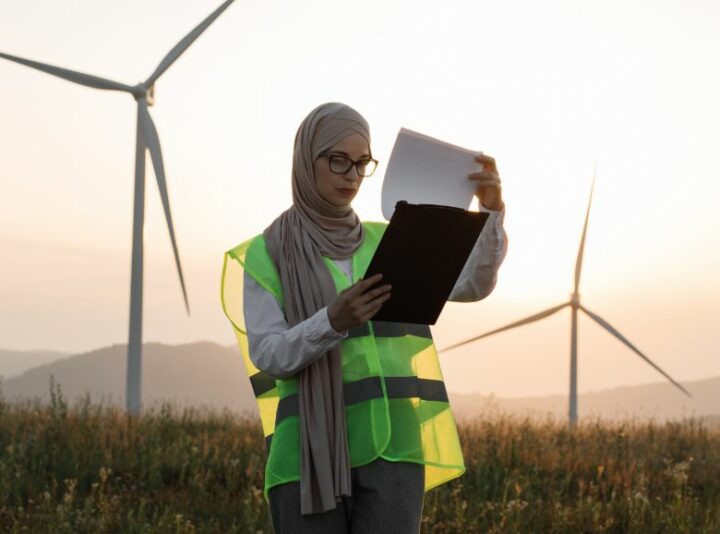Our researchers are involved in a number of interesting and significant research projects, working in collaboration with partner institutions and funding bodies to address the challenges of climate change. Read below to learn more about some of the research projects we are currently involved with.
Making impact today

IDRIC, the Industrial Decarbonisation Research and Innovation Centre
Enabling a greener future for the UK’s industrial clusters
Industrial clusters across the UK are an essential part of the economy – but they also make a significant contribution to UK emissions. Decarbonising the largest clusters is an important step towards reaching the UK’s net zero emissions targets.
IDRIC is developing innovative, cost-effective and multidisciplinary decarbonisation solutions at pace and scale, by harnessing the power of collaboration. Funded by the Engineering and Physical Sciences Research Council (EPSRC) and UK Research and Innovation (UKRI), its goal is to deliver long-lasting economic growth and societal benefits, and to build the foundations for the new industrial clusters of tomorrow.
Professor Benjamin Sovacool, the Director of the Bennett Institute, is also a Co-Director of IDRIC.

ACCESS: Advancing Capacity for Climate and Environment Social Science
Leading on the social science contribution to climate and the environment
ACCESS is working to share our understanding of how people, societies and systems need to change and adapt to create a healthier environment and meet net zero goals.
Its four areas of work include: learning from the past experiences of social scientists to catalyse change; empowering environmental social scientists through training; innovating with new approaches that enable social scientists to play leading roles in addressing environmental challenges; and coordinating environmental social scientists’ knowledge sharing across the UK and worldwide. It is funded by the Economic and Social Research Council (ESRC).
Professor Benjamin Sovacool, the Director of the Bennett Institute, is also Co-Director of Innovation and Research Impact for ACCESS

Fact-checking: epistemologies, public perceptions and automated futures
Examining how fact-checkers produce, justify and articulate their knowledge claims
Fact-checking, as a distinct journalistic form, has risen to prominence in the 21st century as a response to concerns about a lack of respect for the truth in political debate and the rapid spread of misinformation across social media platforms. This project uses expertise and insights from the social sciences and philosophy to examine fact-checking epistemologies.
In the context of political polarisation, challenges to the authority of expertise, concerns about dishonesty in political debate, and the spread of misinformation online, the epistemologies of fact-checkers and how they are perceived by public audiences are topics of great importance. This research will generate novel and impactful knowledge about how fact-checkers produce and justify fact-checks, how automation could change this, and how UK and US public audiences and key stakeholders view different epistemic approaches to fact-checking.
Dr Laurence Williams, Associate Research Fellow at the Bennett Institute, is the Principal Investigator of this project, which is funded by The British Academy.

EMPOCI: Governing sustainable energy-mobility transitions
The EMPOCI project, led by Professor Karoline Rogge, is investigating how to accelerate the low-carbon transition in energy and mobility systems at a regional and national level.
Tackling the climate emergency means rapidly decarbonising our production and consumption systems, particularly in the increasingly interconnected energy and mobility systems.
But how should governments navigate their way between competing climate policy interests and industrial policy concerns, while accelerating sustainability transitions?
Answering this question calls for a re-examination of effective policy mixes for delivering rapid decarbonization and green competitiveness, and a consideration of the politics and policies of green transition processes.
The EMPOCI project has three main aims:
- To provide new understandings of the global interplay between multi-level policy mixes and low-carbon innovations in socio-technical transitions
- To develop and test new methodological tools enabling both deep and broad insights into the drivers and barriers in transition processes towards sustainability
- To co-design practical strategies for accelerating sustainable energy-mobility transitions, supporting the Paris Agreement in combating climate change.
EMPOCI is funded by the European Research Council (grant agreement no. 85273) and started in June 2020. The project will run until October 2026.





